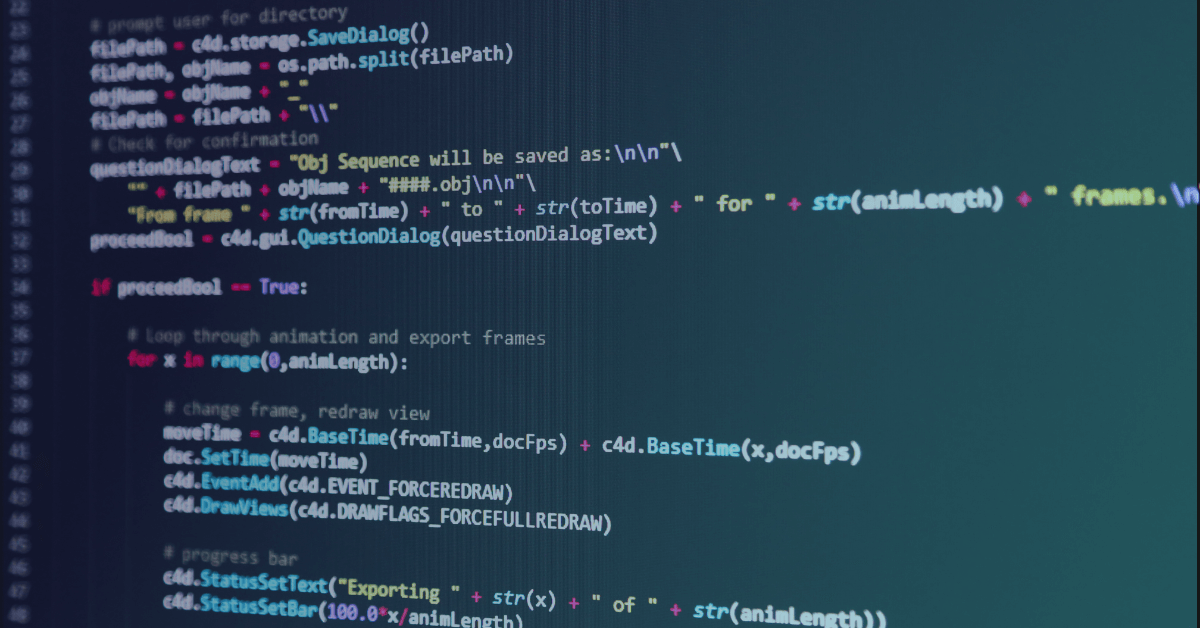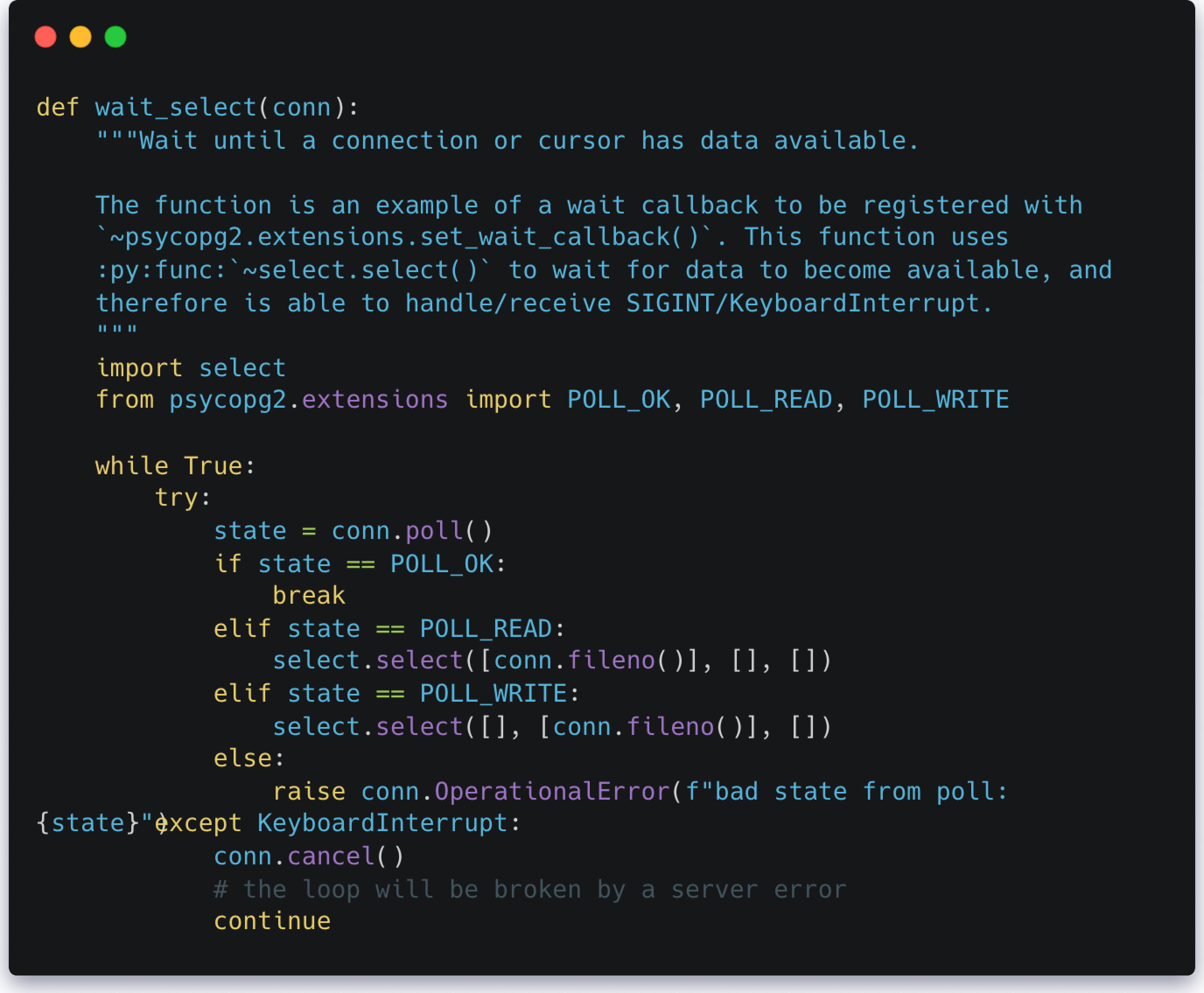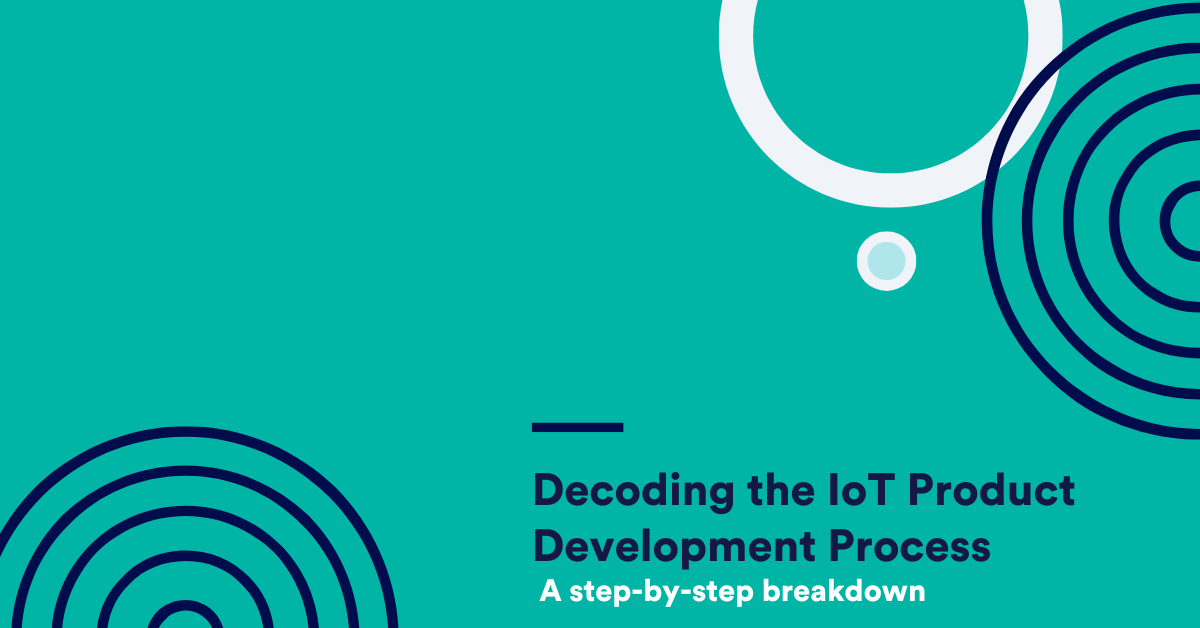Share
Our team of talented engineers at Memfault is driven by their passion for the work they do. Today, we are excited to showcase one of our exceptional software engineers who successfully overcame a significant challenge in our tech stack.
By the way.. we’re hiring! Come join the team here.
We discovered a handy trick to make SQLAlchemy – or rather the underlying PostgreSQL driver called psycopg2 – behave nicer in our Python-based backend service, by not tying up the Python process while waiting for a PostgreSQL query to finish. The improvements are especially evident in long-running queries but they also improve general system responsiveness.
The problem – blocking the Python runtime
We were inconvenienced by one simple fact: firing off a SQLAlchemy query would hand off the query to psycopg2, which in turn would use the C-based libpq to perform the actual query. Calling C code from Python usually means temporarily stepping out of “Python-land” and entering “C-land”, which means a couple of things:
- The Python runtime is essentially frozen: it won’t handle any signals sent to it until we leave C-land.
- Even if we use Python’s threading facilities to run some Python-based logic in parallel with the
psycopg2query, it’s difficult to cancel the running query programmatically.
What did this mean for our service? We were (and are) heavy users of Celery for running background tasks. One symptom was that long-running PostgreSQL queries wouldn’t react to e.g. Celery’s soft_time_limit exceptions, which allows a task a few seconds to gracefully shut down. Instead, we had to use workarounds like always configuring an appropriate PostgreSQL statement_timeout, or using Celery’s time_limit parameter (which just kills the entire process rather unceremoniously).
Making the SQLAlchemy PostgreSQL driver non-blocking
The solution would be to have psycopg2 spin up a new thread, run the PostgreSQL query in C-land and send the results back to Python-land over a socket. In Python-land, we could poll the socket at our leisure, staying responsive to any and all signals and exceptions coming from the application code.
Luckily, this very thing already exists! To make psycopg2 stay in Python-land, just add the following in your app startup routines:
The psycopg2.extras.wait_select is just a reference implementation which will replicate the behavior of the default, blocking driver without getting stuck in C-land, and as an added bonus it automatically cancels the SQL query on a KeyboardInterrupt. It is of course possible to write your own function to pass into set_wait_callback(), which we also did when we wrote some more advanced Celery features.
A good starting point to learn about set_wait_callback is this short article.
The fundamental reason why this feature exists in
psycopg2is to enable running it in various coroutine / green thread implementations in Python. We do not use green threads, we run a vanilla setup of Python which is fully synchronous. It is still extremely useful!
The result
Celery can now raise a SoftTimeLimitExceeded exception even if a PostgreSQL query is running, and it will get canceled and cleaned up appropriately. We can also feel more confident about gracefully shutting down, since we know any cleanup logic in Python-land will run promptly without being blocked. We can also set sensible, global PostgreSQL query timeouts and rely only on per-task time limits as configured through Celery, which is a lot more ergonomic.
We also did not see any performance degradation, even though now we dip into the Python interpreter to shuffle along the query/response bytes!
Bonus: Understanding wait_select
Here’s the current implementation of psycopg2.extras.wait_select:
So how does this work? wait_select is passed a conn variable which represents the current DB connection. The connection can be in one of four states:
POLL_WRITE: Writing the query contents (SELECT * FROM …) tolibpq.POLL_READ: Reading the results of the query fromlibpq.POLL_OK: The reading of the results is done ⇒ nothing more to do.- (
POLL_ERROR: Something went wrong.)
A connection always starts out in the POLL_WRITE state. We then do the follow algorithm in a loop:
- [Blocking] Call
conn.poll(), which will use a socket to read/write some bytes tolibpq. - Perhaps do some other logic (we do nothing in the above implementation).
- [Blocking] Depending on what the connection state is (
poll()returns it), we useselect.select()to wait until the socket is once again ready for reading/writing. - If the state is
POLL_OK, we can break out of the loop since our work is done.
The thing that is special here is step (2) in the algorithm. In the above default implementation we don’t do anything, but that’s not exactly true: we give the Python interpreter a chance to respond to signals, for example right after conn.poll() is where the runtime may raise a KeyboardInterrupt in the event you press ctrl+c in a REPL session.
This exact thing is taken into account in the default implementation: we wrap the polling algorithm in a try block and catch any KeyboardInterrupt. At this point we tell conn to cancel() itself and then advance the loop as usual (continue) to allow libpq to continue reading/writing data, emptying its buffers, until internally psycopg2 can return a POLL_ERROR from conn.poll(). This may not happen immediately.




